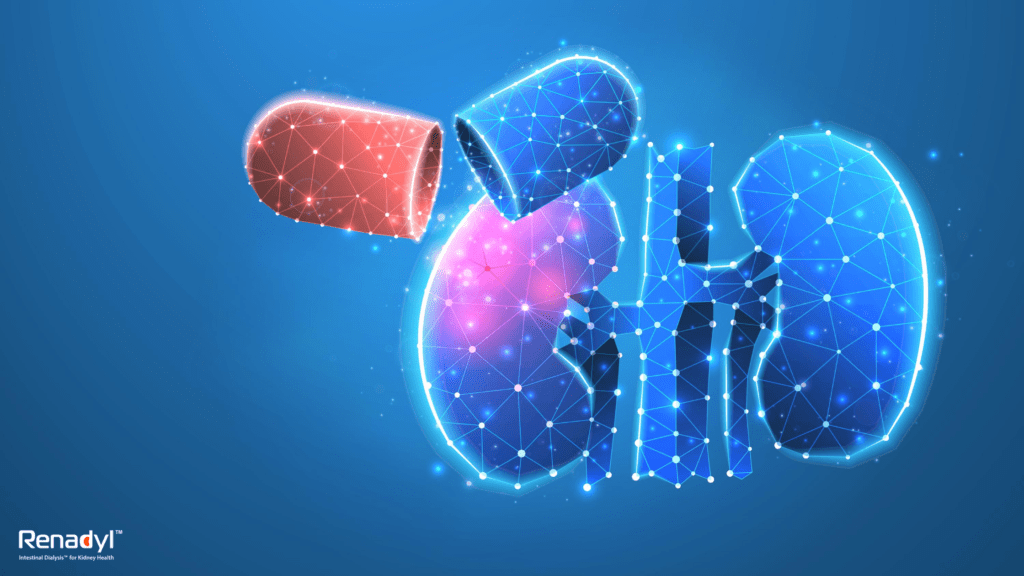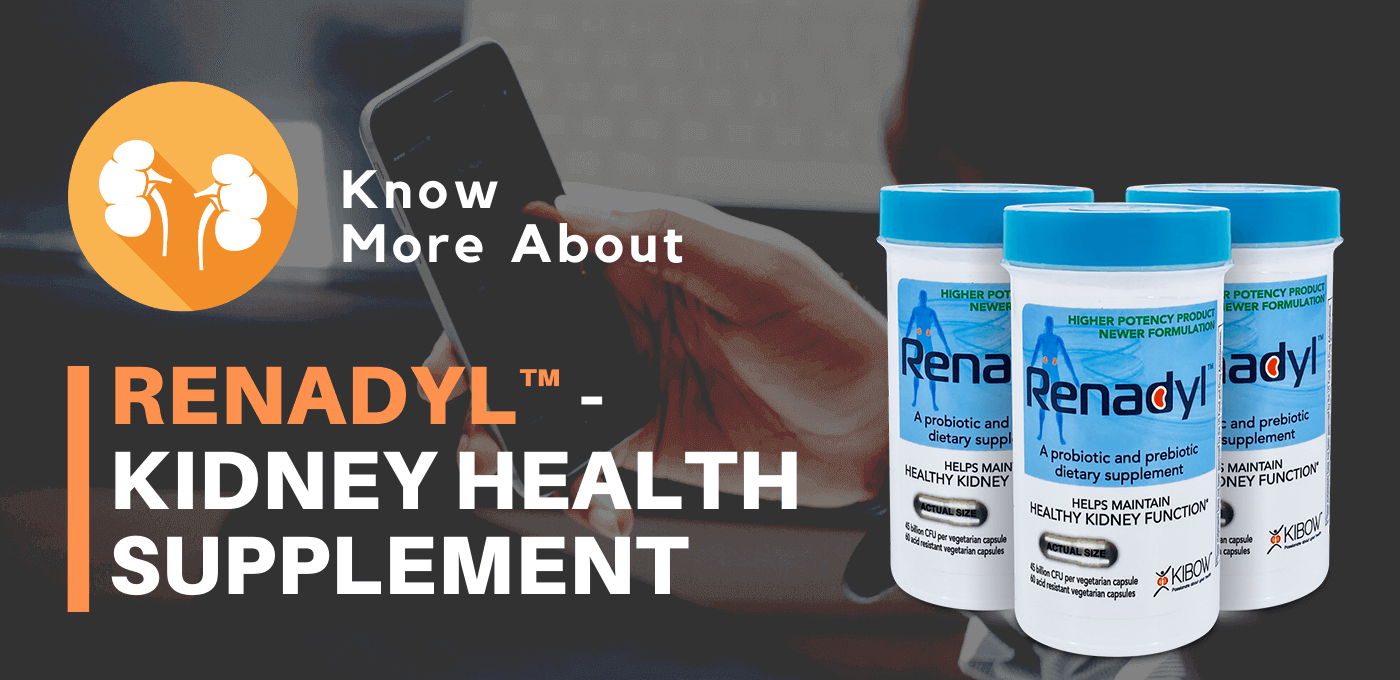
- Home
- /
- Kidney Health
- /
- Blood Pressure and Kidney Function
Blood Pressure and Kidney Function
Article posted in:
Kidney Health

Editor’s Note: Renal problems are often referred to as a ‘silent killer’ because they develop so slowly that many patients don’t realize they have a problem until it’s too late. They might also be unaware that keeping their blood pressure in check can help their kidneys work longer. In today’s post, Dr. Jenna Henderson will explain the intricate relationship between blood pressure and kidney function and share some handy tips for maintaining your blood pressure and healthy kidneys. Please note, this is for educational and information purposes only.
What Organ Controls Blood Pressure?
Over the past several years I’ve given many public talks on high blood pressure. At the beginning of each lecture, I ask the audience, “What organ of the body is responsible for controlling the blood pressure?” The audience usually guesses the heart, the adrenal glands or the brain, and only very rarely will someone pick the right answer—the kidneys. The key to healthy blood pressure is healthy kidneys. If you have high blood pressure and your primary care doctor wants to send you to a specialist, your next visit will be with a nephrologist, a kidney doctor.
Hard Working Kidneys
Moment to moment your kidneys are hard at work keeping your blood pressure in check by regulating the renin-angiotensin-aldosterone system. As blood flows to every part of our bodies, our blood pressure can affect every organ of the body. Even though this is a crucial part of our well-being, most of the time we don’t think about our blood pressure until something goes terribly wrong like a heart attack, stroke, or kidney failure.
Not only does high blood pressure damage the kidney, but damage to the kidney causes high blood pressure. A weakened kidney doesn’t regulate the blood pressure very well, and high blood pressure damages the small blood vessels inside the kidney. In other words, the worse it gets, the worse it gets. Once the kidney has sustained some damage, we may be starting on a downward spiral. Blood pressure can creep up gradually but as some kidney patients know, blood pressure can jump up dramatically when our kidney function falls.
Kidney Function
Our kidneys perform many functions including cleaning the blood, regulating blood pressure, controlling the pH of the blood and secreting hormones, but when your doctor speaks of kidney function, they’re specifically referring to the kidney’s ability to filter out uremic wastes. There are more than 100 waste products that the kidneys filter out of the blood, but doctors generally only look at some of the major waste products like creatinine and BUN (blood urea nitrogen). Tracking your creatinine will give an indication of how well your kidneys are functioning.
Our kidneys can sustain damage, and yet keep functioning for a long time. The nephrons, the filtering units of the kidneys, work hard to keep our blood clean. We start with about one million nephrons in each kidney, but our nephrons break down as we age. If you have high blood pressure, diabetes or nephritis, your nephrons will break down further, often becoming scarred or fibrotic. This process can go on for years. The kidneys will compensate by working harder and continue to keep the blood clean. Eventually, the damage can become so great that the kidneys can no longer compensate. Then the creatinine levels in the blood start to rise, and so will the blood pressure
When your kidneys filter your blood, this happens across a pressure gradient. The tighter you squeeze a sponge, the better it cleans. And the more pressure there is inside your kidney, the harder it will work to clean your blood. Your body will do everything it can to keep uremic wastes from building up in your bloodstream, and this includes raising your blood pressure. The body tries to compensate for a weakness in the kidneys by raising the blood pressure. But like an overworked sponge, the kidneys become more damaged in the process.
Controlling Blood Pressure

Many kidney patients experience a shift in their blood work once they go on blood pressure medication. Their creatinine was okay, but their blood pressure was high. Once they go on medication suddenly their creatinine jumps up. Many patients think it’s the toxicity of the medication that damaged the kidneys, but in fact, the medication just revealed how damaged the kidneys were already.
Other kidney patients already have their creatinine high, and many of them have the expectation that once they control their blood pressure the kidney function will improve. Now that they’re on track with their health, they want their kidneys to bounce back. Controlling the blood pressure will prevent further damage to the kidney, but the damage sustained to the kidneys over the course of many years isn’t easily undone.
Blood Pressure and Kidney Function Tips
Thankfully most of us never reach a critical state of uremia and dangerously high blood pressure. Prevention and good health maintenance will ensure our kidney function and our blood pressure. But issues with blood pressure can easily go unnoticed, which is why it is often referred to as the silent killer. Often there are no symptoms of high blood pressure and people may be quite surprised to find out their blood pressure is high. Symptoms, if they do occur, include headaches, insomnia, frequent nosebleeds, facial flushing and a jittery feeling. These symptoms are easy to ignore or attribute to stress, but over time high blood pressure will take its toll, especially on your kidneys.
The key to kidney health is prevention and early intervention. Maintaining a healthy blood pressure throughout your life is an important step to make sure your kidneys last as long as you do. Here are some steps you can take to maintain your blood pressure and good kidney health:
- Take your blood pressure medications every day as directed. Even missing one dose can cause rebound high blood pressure. Many patients who consult with me are eager to be treated naturally and don’t like taking prescriptions. But I can’t emphasize this enough—it’s important to never abruptly stop a high blood pressure medication. You may become healthy enough to reduce the need for medication but your doctor will help determine if this is possible.
- Maintain a healthy weight. Excess weight will raise the blood pressure and put more stress on the kidneys.
- Avoid very salty foods. Although sodium is an essential nutrient and we need some salt in our diet, most Americans overdo the salt.We don’t need to cut out all salt, but getting rid of canned soups, fast foods, and processed foods will go a long way to keeping our sodium level in a healthy range.
- Get rid of high fructose corn syrup. It’s not the same as sugar, and your body can tell the difference. Consuming high fructose corn syrup is an independent risk factor for high blood pressure.
- Don’t limit potassium unless a healthcare professional tells you to. A healthy potassium level will help keep the blood pressure in a healthy range. Only patients with advanced kidney problems need to limit potassium. Otherwise fresh fruits and vegetables are a healthy choice.
- Check your magnesium levels. Magnesium relaxes the blood vessel wall and reduces blood pressure. A deficiency of magnesium can elevate your blood pressure.
- Drink green tea. In spite of a small amount of caffeine, green tea will lower your blood pressure. When researchers track green tea consumption and measure blood pressure, the green tea is found to improve blood pressure readings.
- Eat celery. A unique compound in celery called 3nB can help keep blood pressure in check. Celery is saltier than some other vegetables, but still far less salty than most processed foods. Unless you specifically need to cut sodium to a very low level, adding some to your diet can be part of a healthy routine.
- Laugh. High blood pressure can be a reaction to stress and part of the fight or flight response. Break up the tension with a good comedy. Laughter floods your system with endorphins and brings your blood pressure down. Aim for 3 belly laughs per day.
Categories
Recent Posts
- Check out these Live Testimonials, thanks to Steve the Kidney Nurse February 15, 2022
- Kidney Friendly Infused Water August 20, 2020
- Is salt bad for the kidneys? August 12, 2020
- Drinking Water With Kidney Problems August 7, 2020
- What is Renadyl Used For August 5, 2020
Recent Comments
- Kibow Biotech on Drinking Water With Kidney Problems
- Santos Gonzalez on Drinking Water With Kidney Problems
- James F Hawkins III on Drinking Water With Kidney Problems
- Loretta on Kidney-Friendly Dessert
- Leo on Kidney-Friendly Summer Meal



Comments
Leave a Comment